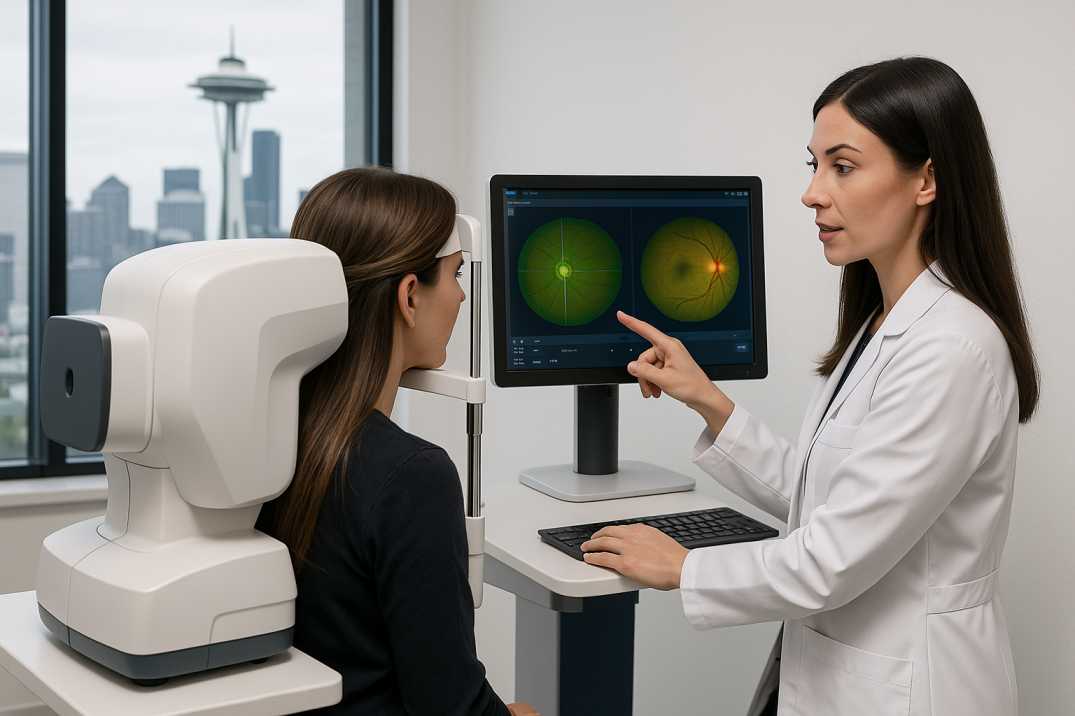ADD/ADHD
Living in Seattle means access to some of the nation’s best healthcare resources and a deep community focus on mental wellness. Yet many families and individuals at Cannon EyeCare still have questions about Attention Deficit Hyperactivity Disorder (ADHD) and its “inattentive” counterpart (traditionally called ADD). This guide answers your top questions, shares actionable advice, and highlights the latest insights and technologies for understanding and managing ADHD—made clear for beginners, grounded in expertise, and based on the newest research.
Understanding ADD/ADHD:
Key Definitions, Types & Local Relevance
ADHD is a common neurodevelopmental condition affecting children and adults in Seattle, characterized by inattention, hyperactivity, and impulsivity. The older term ADD specifically describes focus challenges without hyperactivity. At Cannon EyeCare, we recognize three primary ADHD types:
Inattentive Type (ADD)
• Difficulty sustaining attention
• Frequent forgetfulness
• Chronic misplacement of items
Hyperactive-Impulsive Type
• Restlessness or fidgeting
• Impulsive decision-making
• Difficulty remaining seated
Combined Type
• Displays both inattentive and hyperactive symptoms
Recent studies indicate over 10% of Seattle children and 5% of local adults meet ADHD criteria—making timely diagnosis and support a vital community health priority for families, educators, and our Bellevue clinic.
Understanding ADHD Causes: Science-Backed Risk Factors in Seattle
ADHD stems from complex neurodevelopmental factors—not parenting or willpower. Research confirms it involves genetics, brain structure differences, and environmental influences. At Cannon EyeCare, we emphasize these evidence-based risk factors:
Genetic Links
• Strong family history correlation
Brain Development
• Delayed maturation in key regions
• Prefrontal cortex processing variations
Environmental Factors
• Premature birth complications
• Prenatal toxin exposure (e.g., air pollutants)
• Childhood chronic stress
ADHD Diagnosis in Seattle: A Step-by-Step Guide for Families
Diagnosing ADHD requires comprehensive evaluation by healthcare specialists—not simple checklists. At Cannon EyeCare, our Bellevue clinic coordinates referrals for Seattle families using this evidence-based process:
Diagnostic Steps
• Detailed History: Assessing symptoms across home, school, and work environments
• Standardized Screeners: Tools like Conners or Vanderbilt questionnaires
• Clinical Interviews: Ruling out other conditions (differential diagnosis)
• Observer Feedback: Insights from teachers, caregivers, or family members
• Medical Evaluation: Checking for coexisting conditions (e.g., anxiety, learning differences)
Important Note
No single test (blood, genetic, or vision exam) confirms ADHD. However, uncorrected refractive errors or eye-teaming issues can mimic attention difficulties—making comprehensive pediatric vision exams at our Seattle clinic a critical first step.
Recognizing ADHD Symptoms Across Ages: A Seattle Perspective
ADHD manifests differently throughout life stages. Cannon EyeCare helps Seattle families identify these common patterns:
Children (5-12 years)
• Difficulty sustaining attention on tasks
• Frequent impulsive actions
Teens (13-18 years)
• Time blindness and planning struggles
• Emotional dysregulation
• Academic inconsistency
Adults
• Chronic disorganization
• Working memory challenges
• Impulsive decisions are straining relationships
2025 ADHD Treatments: Evidence-Based Strategies for Seattle
Cannon EyeCare integrates cutting-edge ADHD interventions for Bellevue and Seattle families, prioritizing personalized care plans:
Medication Options
• Stimulants (methylphenidate derivatives): Gold standard for symptom control; shown to reduce accident risks by 42% in NIH studies
• Non-Stimulants (atomoxetine): Viable alternative with fewer side effects
Therapeutic Support
• Behavioral therapy for coping skill development
• ADHD coaching targeting time management
• King County-based family support groups
Technology Innovations
• FDA-cleared neurofeedback devices (available at our Bellevue clinic)
• AI-powered symptom trackers for precision progress monitoring
• Cognitive training apps with clinical validation
Thriving With ADHD: Practical Strategies for Seattle Residents
Manage ADHD effectively in daily life with these actionable tips from Cannon EyeCare:
Daily Success Tactics
• Break tasks into micro-steps
• Implement visual reminders (digital alerts, color-coded calendars)
• Anchor your day with sleep/exercise routines
Advocacy & Community
• Secure school/work accommodations
• Join Seattle support groups (PEPS, CHADD)
Summary: Building Hope and Support in Seattle
ADHD and ADD touch thousands of families in Seattle. With science-backed understanding and compassionate care, you can find strategies and resources that truly work. Cannon EyeCare is here to support you—connecting eyes, brains, and best practices for every patient.
FAQs
-
People with ADHD often show difficulty focusing, forget tasks, and act impulsively or restlessly.




